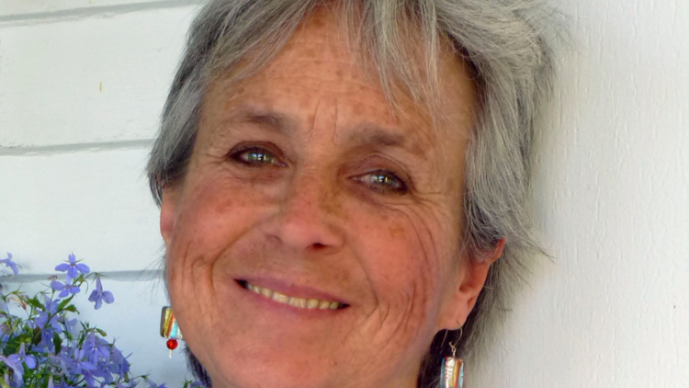Peggy Pearson - English horn/oboe

A long-time member of the Boston Philharmonic Orchestra, oboist Peggy Pearson’s career exemplifies the harmonious synthesis of music and community. Called by Pulitzer Prize-winning critic Lloyd Schwartz “my favorite living oboist,” she is today the featured soloist on the English horn for Sibelius’s “The Swan of Tuonela,” which she first performed with the Boston Philharmonic in 2011. In the rest of her life, she is dedicated to using performance and outreach to build community, to increase access to orchestra and chamber music, and to help young students flourish through excellent music education.
Like many who dedicate their lives to perfecting an art, Peggy Pearson recalls an early formative experience that set the tone for the direction her life later took. When she was 13, her older brother participated in a chamber music class at New England Conservatory, taught by Ben Zander. ”As a teenager, I sat in on Ben’s class and was inspired by his teaching. I was impressed by the way he threw himself into the music and made it impossible for us to care less than he did. I had never experienced anything like it,” she reflects.
Maestro Zander also invited her to the music camp at the Merrywood Music School in Lenox, MA, and the experience epitomized the transformative and uniting impact of music, especially for young players. “We performed the Eroica [Beethoven’s 3rd Symphony] my first year there, and we played our hearts out. The orchestra and audience were in tears,” Peggy recounts. Attending and then teaching at music camps – first the Kinhaven Music School in Weston, VT, and then Merrywood – left in her an inexpungible desire to instill the power of music in young people, particularly through intensive summer programs. “It’s the best way for young students to learn,” Peggy believes. “The kids are at camp for two months, and there is no way they can leave at the end of the summer without getting better. It’s inspiring to see the growth, and a joy to be a part of it.”
Her pursuit of excellence as a musician has yielded a highly successful career both on stage and off. In addition to performing with a number of orchestras and ensembles, Peggy founded Winsor Music, Inc., in 1996 and she remains its Artistic Director and oboist. The first initiative of Winsor Music was a series of chamber music performances, but as a musician with a limited repertoire of chamber music available for her instrument, Peggy quickly realized that she would need to commission new pieces. Winsor Music has since commissioned 25 new works, with a focus on arrangements for oboe.
The most lasting evidence of Peggy’s dedication to combining music and community-building is Winsor Music’s highly successful outreach program, in which students and professional musicians from the Boston area perform chamber music in retirement communities and schools. These chamber concerts are an intimate experience, and Peggy believes that young students especially benefit from performing in this setting. “Our concerts are informal, and it’s a great way to get kids out in front of an audience. They learn to per-
form without fear, to appreciate their own talent, and to think of each concert as a gift they are giving to the audience,” she explains. “I encourage all of the young people that I know to be involved in our outreach concerts. The audiences are extremely receptive, and they love young people. These are audiences that do not usually get to hear music live, so it is a very special occasion for them.”
Intimate performance settings are not the only way to build a community around music. Prioritizing relationships is at the core of the most powerful experiences of performance, both for orchestra players and audience members. In the Boston Philharmonic, much like in Peggy’s first observations of Ben Zander’s classes, each member of the orchestra is encouraged to have a voice and to contribute to the shape of each rehearsal and performance. “It feels like we have some say and that we can change things,” Peggy notes. To encourage audiences to engage fully with each concert, Peggy says of her own chamber series, “I try to do what Ben does – to go out and talk to people beforehand, at intermission, after the concert.” She values this interaction as one of the most effective and crucial ways to break down barriers between performers and the audience and to augment each person’s personal connection to the music.
In speaking with Peggy, one statement seems to truly capture the spirit of unity and cooperation that lies at the heart of her music and activism efforts. Describing BPO wind sectional rehearsals led by John Heiss, she reflects, “These have made us all listen to one another very carefully, and we are working very hard to get a blended wind sound…It involves giving up your ego and trying to get into the sound of other players so that the composite sound is beautiful.” What could be more apropos for building any ensemble or community?
Click here to listen to Sibleius’ ‘Swan of Tuonela’.